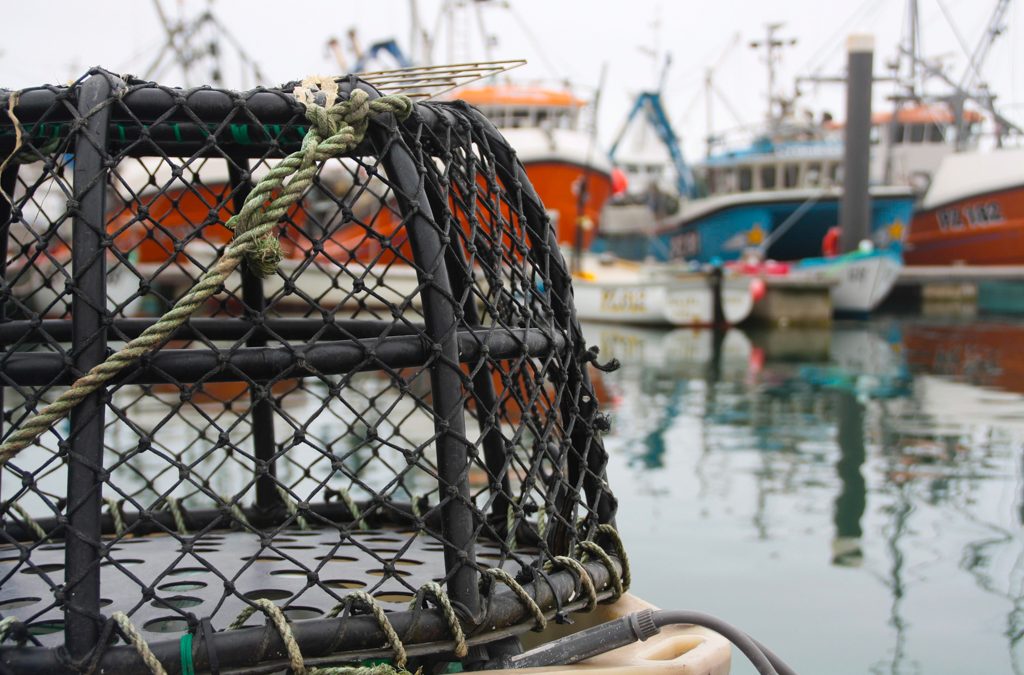Shortly after closing applications for its highly competitive second round of funding, the UK Seafood Innovation Fund has released results of recently completed feasibility studies focused on supporting a sustainable future for seafood industries.
The UK Seafood Innovation Fund has announced the successful completion of 11 feasibility studies, where innovative ideas undergo initial testing to see whether they would work.
The studies, submitted during the fund’s inaugural round of applications, are the first to have benefited from the financial support offered by the Government’s £10 million fund, and propose innovative solutions to support a sustainable and resilient future the UK’s aquaculture and commercial fisheries sectors.
Through its £10 million UK Seafood Innovation Fund, the UK government is committed to rewarding innovative ideas that aim to make a significant improvement to the future sustainability, profitability and efficiency of any part of the seafood sector.
Completion of this first round of feasibility studies is an important milestone for the fund in achieving its goal of driving transformational change for the future of the UK’s seafood sectors. These initial studies can now apply for further funding to develop their work.
Defra Fisheries Minister, Victoria Prentis, said: “It is great to see the Seafood Innovation Fund in action, showcasing the benefits of investing in research and new technologies.
“We want a profitable and sustainable fisheries industry as we become an independent coastal state.
“These studies demonstrate the innovation and drive that exists in our world-leading fishing, seafood and technology industries and I look forward to seeing the further development of these interesting projects.”
Professor Fiona Lettice, Chair of the UK Seafood Innovation Fund Steering Group and Pro-Vice-Chancellor of Research and Innovation at the University of East Anglia, said, “These are the UK Seafood Innovation Fund’s first completed projects, and we are proud that they showcase the breadth of innovation that the fund is here to support.
“Although the work was completed during challenging times for UK research and seafood industries, the feasibility studies’ success are a testament to the resilient nature of these sectors.”
A number of the feasibility studies were aligned with the UK Seafood Innovation Fund’s objective to support a sustainable future for UK commercial fisheries.
Reef Cubes® were designed and successfully deployed next to a shellfish aquaculture site to create new habitat for wild crabs and lobsters.
Researchers from ARC Marine hope that the co-location of artificial reefs with the aquaculture operation will offer support to the shellfish fishery, whilst strengthening the relationship between fishers and aquaculture operators.
Another study, led by the RSPB, saw researchers work closely with fishers to measure the rate at which baited hooks sink in a floated demersal longline fishery, and proposed gear modifications to reduce the risk of seabird bycatch.
Computer simulations identified a series of modifications to the longline gear, which could accelerate the sinking of hooks beyond the reach of diving seabirds. A series of follow-up trials are planned to test how these modifications can reduce seabird bycatch in the fishery.
Similarly, other completed studies were designed in line with the fund’s goal of boosting a sustainable, productive future for the UK’s aquaculture sector.
To determine whether sustainable feed for aquaculture can be created from Single Celled Proteins, scientists and engineers from The Centre for Process Innovation (CPI) showed that mixed-culture bacteria can be produced from gas fermentation, paving the way to explore the possibility of whether the technique can be scaled up to produce industrial amounts of feed.
A pioneering study by SeaGrown proved that offshore multispecies mariculture – growing shellfish in cages alongside seaweed – is possible. The group now intends to further develop their work to show how the low-impact system can continue to withstand harsh offshore environments to produce quality seafood over a longer time period.
Two different studies tackled an emerging issue of utmost interest for the UK Seafood Innovation Fund – how data can be better utilised to improve the efficiency and resilience of seafood businesses.
R3 IOT worked with aquaculture operators to identify which cutting-edge technologies could be developed to provide a digital platform for the collection and analysis of data.
The researchers hope that the next phase of their project, developing the platform, will provide the aquaculture industry with a tool to gain insight into how they may tackle environmental and operational issues.
The CoFIDaCoM project confirmed the need for improved data collection and management in the commercial fishing sector, with the view to helping fishers collate and use information provided to enhance safety, reduce time spent at sea, and limit environmental impact.
Fishers who were consulted said that being able to consolidate data about their catch, vessel location, and their efficiency and productivity would help them make decisions that promote better use of fishing time, fuel, and fishing effort.
These feasibility studies are now eligible to apply for further funding from the UK Seafood Innovation Fund to continue their work. This will see them submitting proposals as part of a closed-application session, competing only with the other feasibility studies within their round.
If successful, the applicants could receive up to £250k from the fund to complete full research and development projects over the next 18 months.
In other news for the UK Seafood Innovation Fund, the highly competitive second round of applications closed on 26 June 2020 – with double the number of applications submitted than in the first round.
The next round of successful applicants will be notified of their award by October 2020, and this cohort of innovative seafood-focused projects is expected to start work soon afterwards.
For further information on the completed projects, visit our website https://www.seafoodinnovation.fund/project-category/completed-projects/.


Recent Comments